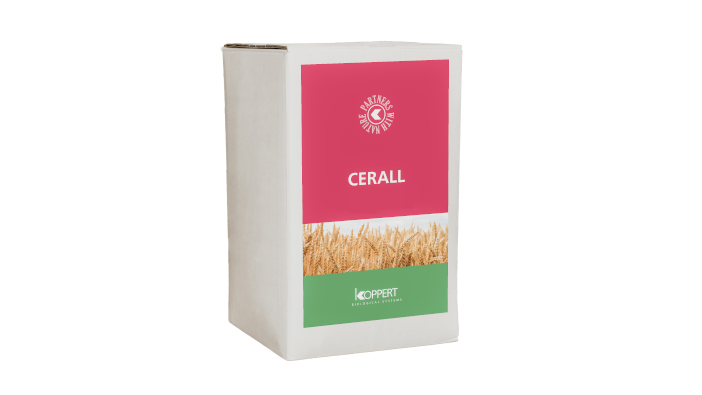The Cerall seed treatment from Koppert has been proven to be equally, if not more, effective against seed bourne fungi than synthetic chemistry in wheat, rye and triticale.
It’s based on the beneficial bacterium Pseudomonas chlororaphis strain MA 342, which controls seed-borne diseases including Fusarium, common bunt (Tilletia caries) and Septoria nodorum.
It produces substances which are lethal to the fungi and, when present on the roots, it competes with plant pathogenic fungi for space and nutrients, inhibiting development and resulting in stronger roots. According to the company, it also induces resistance within the plant, allowing the crop to fight fungi naturally.
“Seed treatments and good seed hygiene are obviously well-established elements of an integrated crop protection strategy, but Cerall goes beyond this in actually promoting resistance in the plant,” commented Dr Richard Binks, Koppert crop protection consultant.
In trials conducted by NIAB, Cerall was shown to be as effective as chemical control, with European trials demonstrating its effectiveness against diseases including Fusarium and T. caries. Across Europe, around 55,000 hectares are reportedly treated with Cerall.
“Another advantage of Cerall is that, as it consists of natural components, it is suitable for use in both conventional and organic crops, and has been verified for use in organic production by both the Soil Association and Organic Farmers & Growers,” added Dr Binks. “As a natural product, resistance is highly unlikely to develop and it provides long-term disease protection with no Maximum Residue Limit (MRL).”
Cerall is applied as a liquid seed treatment, with growers being urged to contact their seed suppliers to arrange treatment ahead of drilling.
For more information go to www.koppert.co.uk


